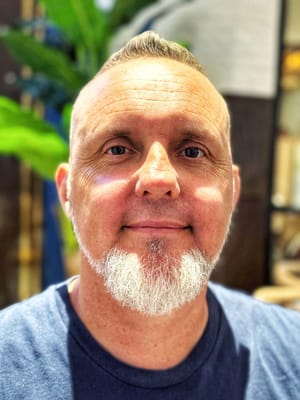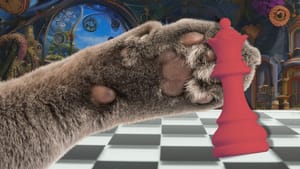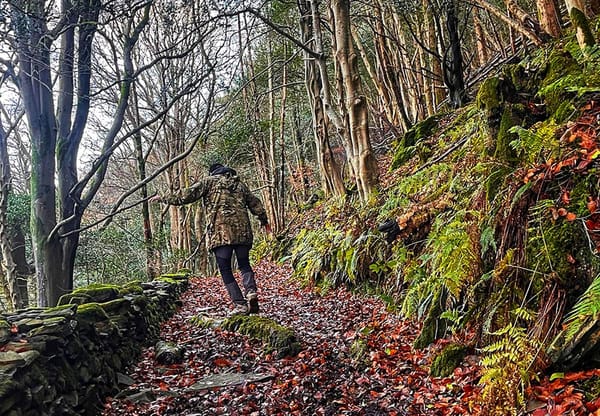I've lost count of how many times I've sat across from someone—an executive, an artist, a parent, a grad student—and seen the same mix of emotions play over their face. On the surface, everything might look okay. They're checking off all the boxes society has laid out: education, career, a family or a creative passion. Yet underneath, there's a restlessness. A voice that whispers, Is this all there is?
I know that restlessness all too well. My own life has zigzagged through different stages and roles. I started as a martial arts instructor, guiding people on how to move their bodies with precision and confidence. But behind each physical technique, I sensed a deeper quest for purpose—for why it mattered to move in the first place. That curiosity drew me into what I now call ‘philosophical coaching,’ although back then I didn't have a neat label for it. I just knew I was fascinated by the way people search for meaning.
The Tension Beneath the Surface
Sometimes, I think the real conflict isn't about ‘finding happiness’ or ‘being stressed.’ It's about reconciling the world's endless noise with the small, sincere voice inside us that yearns for a sense of connection and clarity. We're bombarded by more information than any generation before. We can text a friend halfway across the globe at midnight and get an almost immediate reply. Yet in spite of all this supposed connectivity, people keep telling me they feel alone.
It's not as if we don't have goals—most of us have too many, if anything. But as we chase these milestones, we rarely stop to ask, Why am I doing this in the first place? And that question—the why—is at the heart of the modern meaning crisis. Because if your why is missing or shallow, even the biggest accomplishments can feel hollow.
My Own Search
Before I ever coached anyone in living their philosophy, I was the student, soaking up insights from every corner. I studied martial arts, yes, but I also explored different philosophies—stoicism, existentialism, Zen Buddhism—and found a surprising amount of overlap: each tradition offered a lens for looking at life's questions without resorting to quick-fix answers.
These weren't abstract theories in a dusty book. They were living ideas that I used to test my own fears, motivations, and sense of identity. And as I taught martial arts, I saw how students were wrestling with the same sorts of questions: Am I good enough? Is this path really mine, or is it what someone else wants for me?
What began as personal exploration naturally evolved into something more. As students opened up about their deeper struggles, I realised that the philosophical insights that had helped me navigate my own path could serve as practical tools for others. This understanding formed the bridge between my role as a martial arts instructor and my current work as a philosophical coach.
What Philosophical Coaching Feels Like
When I sit down with someone for a session, there are no dramatic revelations, no booming voice proclaiming universal truths. It's often much quieter than that: a slow, intentional process of peeling back the layers of your beliefs, assumptions, and unspoken rules.
I might gently ask:
- Why do you think ‘success’ has to look like that?
- What do you mean by ‘purpose’?
- When you imagine your future, whose voice do you hear guiding you—yours, or someone else's?
It might feel uncomfortable at first, because our culture loves speed. We want neat formulas and instant clarity. But life's big questions—Who am I? Why am I here? What should I do with my time?—rarely yield to quick fixes. Instead, they invite us into a kind of conversation with ourselves, one that grows deeper the more we show up to it.
A Few Moments of Transformation
I've seen people transform in ways that make me smile weeks later. There was the tech entrepreneur who had built a successful startup almost by accident. From the outside, he looked like a poster child for success. Inside, he felt like an imposter, unable to articulate why his work mattered beyond financial gain. We spent weeks unravelling that tension, and by the end, he'd found a new, heart-centred mission for his company.
Then there was a recent graduate who bounced from internship to internship, not because she lacked talent, but because she'd never paused to consider what she truly valued. She arrived saying, ‘I just need a plan,’ but left with something far more enduring: a clearer sense of who she was and the courage to craft a plan that fit her—not someone else's expectation.
These transformations taught me something profound: meaning isn't something we find like a lost object. It emerges when we create space to listen to our deeper wisdom, when we dare to question the stories we've been told about what makes a life worthwhile. Each person's path to meaning is unique, yet the process of discovering it often follows a similar pattern—moving from external validation to internal understanding.
Why It Matters Now
We live at a time when old structures—religious, familial, communal—aren't always the guiding forces they once were. For better or worse, we're left to chart our own courses, often with little guidance on how to do so meaningfully. This open-ended freedom can be exhilarating, but it can also be terrifying.
I believe that when we face these big existential questions directly—when we stop running from them and instead treat them as honest invitations to reflect—something shifts. We begin to see that the search for meaning isn't just about external achievements. It's an ongoing dance between our inner life and the world around us, requiring curiosity, courage, and a touch of grace.
Coming Home to Yourself
People often ask me, ‘What do I get out of philosophical coaching?’ I hesitate to give a one-size-fits-all reply, because each person's path is unique. But if I had to summarise, I'd say you get a chance to come home to yourself. To stop chasing illusions or ticking off someone else's checklist. To figure out, in conversation with a curious guide, what you really stand for.
Yes, it can be challenging. It might even feel daunting. But there's a remarkable peace that comes from knowing that, amidst the world's noise, you have an inner compass you can trust. That compass is built from your values, your reflections, your willingness to question, your personal lived philosophy. And once it's there—well, you still face uncertainty, but you do it with a grounded sense of who you are and why you're here.
An Invitation
If any of this strikes a chord—if you feel a spark of recognition in these words—I invite you to reach out. We can talk about whatever questions or longings are simmering below the surface for you. There's no promise of easy answers, but there is a promise of honest, dedicated inquiry. Sometimes, that's enough to unlock a different way of being in the world.
I've learned that meaning can't be manufactured or force-fed; it's something we cultivate. It's in the conversations we have, the choices we make, and the dreams we dare to explore. In a time that can feel disorienting, philosophical coaching offers a space to rediscover the quiet, steady part of you that already has some answers—and the courage to keep asking better questions.
I'm here if you want a listening ear, a fellow traveller, someone who's spent years grappling with these same dilemmas and still finds joy in the adventure of it all. Reach out, let's connect, and see if there's a new path waiting to unfold.
Final Reflection
Our modern world might be an age of uncertainty, but it can also be an age of wisdom—if we're willing to listen to the natural intelligence we already possess. The search for meaning isn't a problem to solve; it's an invitation to reconnect with our innate capacity for understanding. In our rush to optimise and improve, we often overlook the simple wisdom that resides within us, waiting to be remembered rather than learned. I hope you'll join me in this journey of rediscovery, where the questions themselves often matter more than the answers we seek.










Member discussion